YIVO's Top 5 of 2017
Thanks to our incredible donors, YIVO has been able to accomplish many great things this year. Here are some of our favorites:
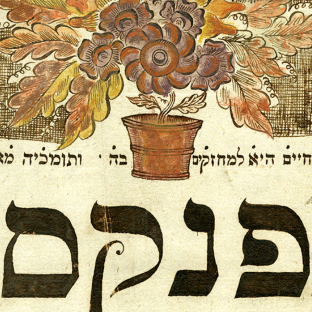
The Edward Blank YIVO Vilna Collections Project
In May 2017, YIVO discovered in Vilnius, Lithuania, 170,000 documents thought to have been lost during the Holocaust and destroyed by the Nazis. The entire Vilna Collections now encompasses some 12,200 rare books and approximately 1.1 million original documents from the Jewish world of Eastern Europe. In just three years, YIVO has raised $5.4 million of the $5.6 million needed for the initial phase of the Project. We have recently announced a new campaign to raise an additional $3 million for the new phase of the Edward Blank YIVO Vilna Collections project that includes the creation of an online museum of Eastern European and Russian Jewry. Consisting of galleries of carefully selected and translated materials with commentary by leading scholars, this museum will make the digitized books and documents available to a global audience on a free-access website.
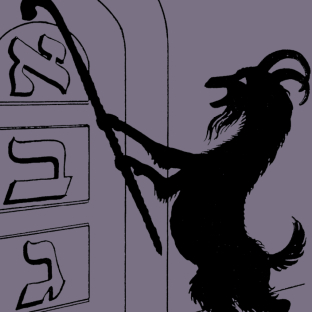
YIVO’s Shine Online Educational Series
Our second online course, Folksong, Demons, and the Evil Eye: Folklore of Ashkenaz, presented by Edward Blank & Family launched to rave reviews in January 2017. Taught by Prof. Itzik Gottesman, the course explores the music, folktales, rituals, and superstitions of Jewish Eastern Europe and features special guests and experts on the subject. Development for our third class, Oh Mama, I’m in Love! The Story of the Yiddish Stage, is underway and will launch May 1, 2018. Stay tuned for more details and how to register in the coming months.
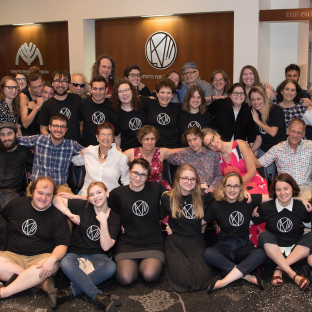
Uriel Weinreich Program in Yiddish Language, Literature, and Culture
The 50th summer program brought together students ages 18-70—from Brazil, Japan, South Africa, and across Eastern Europe and the United States. The longest-running Yiddish intensive program in the world, this year featured courses taught by leading scholars, a screening of The Muses of Bashevis Singer with director Asaf Galay, and a Summer Yiddish Song Celebration concert highlighting the breadth of music with Yiddish lyrics. The program trains the next generation of Yiddish scholars, teachers, and students, inspiring communities worldwide to experience Yiddish in all its history, complexity, and beauty.
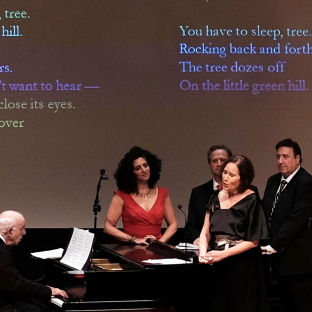
Public Programs
We hosted 45 public programs, covering a range of Jewish life, history, and culture, including: the Jews In and After the 1917 Russian Revolution conference bringing together two dozen scholars to explore the context of, and immediate reaction to the Revolution, Jewish life in the Soviet Union, and the Revolution’s lasting impact today; the concert A Yiddish Liederabend — An Evening of Yiddish Song devoted to treasures of Yiddish song and the poetry that has inspired this musical expression in all its variety of style; and Children’s Day, a day of sing-alongs, storytelling, and puppetry inspired by the lives of Jewish children before World War II.
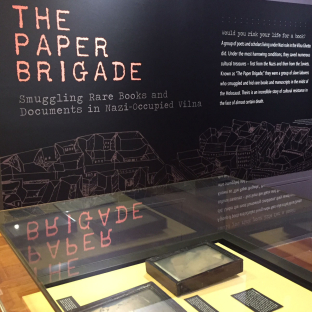
Five Exhibitions
We presented five exhibitions: The Strashun Library: Treasures Rescued from the Ashes of Vilna, exploring the Strashun Library, a major collection stolen by the Nazis from Vilna and found in Germany after the war; Yidishe kinder: Jewish Children and their World before the Holocaust, showcasing the artifacts of the life kids lived in Yiddish before World War II, from children’s storybooks to magazines, from school textbooks to limericks; Through the Yiddish Looking Glass: The Art of Yiddish Children’s Literature, revealing the creativity of Yiddish artists through Yiddish children’s books, which contain some of the most stunning illustrations in the world of Jewish books; The Paper Brigade: Smuggling Rare Books and Documents in Nazi-Occupied Vilna, featuring rare books, letters, manuscripts, and other documents that would not have survived if not for the courage of the Paper Brigade who smuggled them out of Nazi hands and secretly buried in the Vilna Ghetto; and Vilna Discovery: Lost Jewish Documents, displaying newly discovered rare and unpublished works, thought to have been destroyed during the Holocaust, which represent the collective memory and cultural history of Eastern European and Russian Jews.




